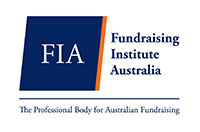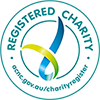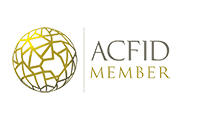| Last Updated: | 28 July 2022 |
| Purpose: | Outlines Mary MacKillop Today’s commitment to ensuring gender equity and diversity in the workplace and programs. |
| Additional Authority: | State based government legislation, Timor-Leste Employment Statutes |
| Scope: | Any Representative of Mary MacKillop Today. |
| Responsible Party: | Gender Focal Point |
In order to fulfil our mission and vision, Mary MacKillop Today is committed to advancing gender equity and diversity throughout our organisation and in our programs.
Mary MacKillop Today recognizes that gender is not binary, and that terms and definitions related to gender and sexuality are diverse and continue to evolve. To facilitate ease of reading within this policy we refer to ‘all genders and ages’ throughout. This demonstrates our recognition of and ability to work with adults and children and individuals of all sexual orientations, gender identities and/or gender expressions. We recognize that rigid gender norms limit people of all genders and sexual orientations by creating and reinforcing assumptions and systems of privilege (sometimes codified in laws and policies), about their recognition in society and the range of roles and opportunities open to them. These not only limit individuals who identify as girls, boys, women and men as well as identities beyond the binary, but also individuals whose sexual orientations do not conform with dominant norms and expectations of heterosexuality. While rigid gender norms can limit all of us, Mary MacKillop Today also recognizes that gender norms and hierarchies are constructed by people and systemically privilege some groups over others.
Throughout this policy when reference is made to all genders and ages this includes (cisgender and transgender) women and girls, men and boys as well as people who identify beyond the binary; and people of all sexual orientations.
Mary MacKillop Today’s commitment to gender diversity, equality and equity, in Australia and internationally, is grounded in globally agreed human rights principles, including non-discrimination.
Mary MacKillop Today recognises that respect for indigenous knowledge, cultures and traditional practices, in Australia and worldwide, contributes to sustainable and equitable development and care for our common home. We commit to:
- Recognise and promote the inherent rights, dignity, and well-being of the First Nations Peoples of the world in line with the United Nations Declaration on the Rights of Indigenous People.
- Acknowledge and pay respect to the traditional custodians of the land where our offices in Australia are located, including the Cammeraygal people of the Eora Nation for our Head Office in North Sydney.
- Recognise First Nations People’s right to self-determination and in doing so consult with them on decisions that affect them.
- Identify and address barriers that may prevent First Nations Peoples from accessing and equally benefiting from our work.
- Reducing potential negative impact of our work on First Nations Peoples.
The CEO shall appoint a staff person to be the gender equity focal point for the organisation who promotes this important aspect of our work through activities such as staff training, policy revision and tool development.
Mary MacKillop Today believes that all people, by virtue of their shared humanity, carry inherently equal dignity and rights regardless of their gender identity.
Therefore, Mary MacKillop Today seeks to affirm and promote the equal rights, opportunities and status of all people.
Mary MacKillop Today will improve the ability of people to work effectively in the organisation and in communities which we serve by increasing awareness of gender inequities and by working with all people to change the conditions that create and maintain such inequities.
Mary MacKillop Today commits to:
- Maintaining a culture of inclusive, safe, and protective environments for all, including our employees, volunteers, contractors, partners and the communities and individuals we work with, particularly those most vulnerable to exclusion.
- Upholding a zero–tolerance to, and taking all reasonable and proportionate action to eliminate, any forms of violence, discrimination, harassment, abuse or victimisation.
- Valuing, promoting, and increasing awareness of diversity and inclusion within work practices at all levels including decision making, planning, and employment.
- Having in place organisational policies and practices that reflect and respect the diversity within Mary MacKillop Today, our partners and the communities we serve.
- Ensuring all personnel understand, sign and comply with Mary MacKillop Today’s Code of Conduct and Safeguarding Policy.
Mary MacKillop Today fosters an environment where inclusive working relationships and respect for diversity in work, opinions, and management styles is encouraged and where all employees have the opportunity to reach their full potential.
Mary MacKillop Today operates in countries overseas each with its unique culture, norms and values, perspectives and socioeconomic environment. This diversity should be reflected within the organisation in order to enact our core values and promote a robust organisational culture and quality operations.
Mary MacKillop Today will promote diversity within the organisation in order to benefit from a variety of perspectives to inform organisational strategy, communications, decision-making, and how programs are designed and implemented.
Mary MacKillop Today will advance gender equity within the communities we serve through our programming, our fundraising, advocacy and our influence on policy.
Mary MacKillop Today commits to the empowerment of women and girls, as we recognise this is key to redressing the power imbalances and inequalities that exist, and to achieving gender equality. We commit to:
- A do no harm approach.
- Adopting zero–tolerance to violence against any person based on their gender.
- Recruiting and retaining personnel with a commitment to gender equality.
- Ensuring women are represented in leadership roles, decision making, planning, and employment.
- Building staff and partner capacity and skills in gender equality and diversity.
- Engaging with partners to ensure they have, or are supported to develop, capacity to promote women’s empowerment and gender equality.
- Collecting, analysing and responding to gender disaggregated data to inform the work we do.
- Ensuring program monitoring, evaluations and reviews assess progress towards gender equity outcomes.
Strategies to implement the gender equity and diversity policy include addressing gender equity and diversity in:
- Recruitment and selection of staff and directors
- Induction
- Mary MacKillop Today values and code of conduct
- Staff held accountable for their behaviour through their work plans and performance planning, implementation and appraisal
- Learning and development, e.g. internal staff and partners
- Employment conditions, e.g. flexible work hours, parental leave
- Strategic planning and workforce planning
- Communications, e.g. online, verbal, written, meetings
Mary MacKillop Today demonstrates its commitment to gender equity and diversity in business practices by:
- Promoting gender balance and cultural diversity at all levels of the organisation, including senior management and governing body.
- Ensuring all employees have the opportunity to input into decision-making processes that may affect them.
- Integrating gender and diversity considerations in all planning exercises including strategic and operational planning, program and work plans, and will allocate adequate resources to support relevant initiatives.
- Considering gender equity and diversity in all relevant Mary MacKillop Today policy frameworks and fundraising and marketing communications. This includes monitoring the language used in all publications and materials, and those of partners.
- Conducting periodic gender equity and diversity checklist within Mary MacKillop Today.
- Providing new parents with a room to pump/express milk/ breastfeed or bottle feed their babies in the workplace, sufficient break time to do so, and a refrigerator to store their breastmilk / formula.
- Ensuring organisational development and human resources processes support staff to reach their full potential in the workplace and are equally rewarded without gender-based discrimination.
- Ensuring working conditions reflect the diversity of the workforce and support staff in meeting their personal responsibilities.
- Creating an environment where staff feel physically and emotionally safe at work.
- Actively supporting staff to improve their gender equity competency and sensitivity.
- Celebrating and actively accepting diverse cultural backgrounds and different gender identities.
Mary MacKillop Today’s employment policies are based on the principle of merit, whilst recognising that a variety of strategic approaches and actions are required to promote gender equity and diversity within the organisation.
To enhance program quality and to affirm our commitment to our vision, mission, and values, Mary MacKillop Today will promote gender equity and diversity through programming systems and approaches including in program planning, workforce planning for implementation of programs and in each stage of the project cycle.
Mary MacKillop Today respects the diverse beliefs and cultures of the contexts in which we work, but the pursuit and implementation of gender equity underpins our programming approach for effective development outcomes.
Mary MacKillop Today undertakes programs that identify and address unequal power relations, and marginalisation. Wherever possible programs will not only address the basic needs and well-being of marginalised groups regardless of their gender identity but will increase access to resources, participation in decision- making in the home and communities, protect or promote legal status, and increase control over resources and benefits.
Mary MacKillop Today systematically analyses gender relations during assessments, including opportunities and constraints to equal opportunities for people of all genders within the relevant cultural context, and uses this gender analysis to design and implement programs/projects that maximise positive impacts on gender equity and minimise potential negative consequences.
Mary MacKillop Today systematically analyses issues related to diversity that are relevant to the particular socio-economic context as an explicit part of holistic analysis during assessment and program/project design stage and uses the diversity analysis in ongoing program/project monitoring and evaluation.
Mary MacKillop Today monitors and evaluates all projects in order to measure their relative impact on people of all genders, as well as marginalised and/or vulnerable groups, and uses lessons in ongoing design and management.
Mary MacKillop Today promotes gender equity and diversity during all stages of the project cycle through staffing arrangements, training and capacity building of employees and counterparts, ensuring that all people regardless of their gender identity have input into decision-making, and innovative strategies for promoting inclusion of diverse opinions.
Mary MacKillop Today has a gender-sensitive checklist for use in the project cycle.
Strategies to implement the gender equity and diversity policy in programming and Partnerships include a commitment to the following:
- Assess and manage the risk of exclusion and inequity in the course of our work in Australia and internationally and encourage and support partners to do the same in delivering projects. Ensure assessments, contextual analysis, management and mitigation of risk, and our monitoring of these risks, address marginalised and vulnerable groups.
- Conduct, analyse and respond to monitoring and evaluation of our programs to track progress towards, and impact on, equality and empowerment and to ensure we avoid exacerbating inequalities.
- Incorporate data disaggregated by gender, age and other relevant diversity factors.
- Undertake proactive analysis of equity issues across all stages of the program cycle and use this knowledge to inform program planning and design and organisational practices.
- Share knowledge and practices within Mary MacKillop Today, with partners and with broader stakeholders.
- Apply a twin track approach to programming that promotes equity and inclusion
– by explicitly identifying specific actions for vulnerable people/groups in conjunction with mainstream inclusion. - Recognise that the promotion of the principles and commitments in this policy contributes to Mary MacKillop Today’s principles-based approach, with a commitment to: Women at the Heart, Reaching the Margins, Dignity through Self-Determination, Genuine and Accountable Partnerships.
- Identify potential programming risks throughout the project cycle and take steps to do no harm and mitigate unintended consequences of backlash and gender-based violence, regardless of sectoral focus, especially in fragile contexts.
- Form partnerships with women’s rights and/or LGBTIQ+ organisations and movements to collaborate in the achievement of shared goals and elevate the voice of marginalised people; and engage key stakeholders in the struggle for gender equality including other civil society, government, private sector, public and private donors.
- Engage men and boys in support of gender equality and women’s empowerment when in line with programming and/or organizational objectives.
- Ensure evaluations and reviews do no harm, are participatory, and assess progress towards gender equality outcomes. Ensure that they document best practices and challenges, and create mechanisms for cross-learning within communities, within Mary MacKillop Today and with partners.
Any complaints related to harassment or discrimination on the basis of gender should follow the reporting procedure outlined in the Anti-Discrimination and Harassment Policy (1.1).
Representative: Any person acting on behalf or under the name of Mary MacKillop Today including Board Members, volunteers, contractors, consultants and staff.
Gender: The socially constructed roles, behaviours, attributes and expectations of men, women, girls and boys in a society; this is learned, changes over time, and varies according to cultural, religious, historical and economic factors across and within cultures.
Gender equality: women and men and people with other gender identities enjoy equal status in society, along with girls and boys. Achieving gender equality requires the promotion of equal rights, since equality
between all people regardless of gender is an integral part of human rights. It also requires an understanding of gender relations.
Gender equity: women and men and people with other gender identities enjoy equal status in society, along with girls and boys. Achieving gender equality requires the promotion of equal rights, since equality between all people regardless of gender is an integral part of human rights. It also requires an understanding of gender
relations.
Non-binary: Diversity of gender.
Gender identity: a person’s internal sense of being male, female, or some combination of male or female, or neither male nor female. A person’s gender identity may be different from their biological and physiological sex and may change over their lifetime.
Diversity: We understand that each individual is unique and recognise the individual differences that all people bring to Mary MacKillop Today. In line with ACFID’s definition of diversity, these can be along dimensions of race, religion, ethnicity, indigeneity, disability, age, displacement, caste, gender, gender identity, sexuality, sexual orientation, poverty, class or socio-economic status. We recognise and promote diversity within Caritas Australia and see diversity as a strength that contributes to our organisational effectiveness. Diversity is a complex issue, as identity aspects can be overlapping, fluid/changing and potentially invisible to others. Mary MacKillop Today acknowledges that we are all different and this inherent diversity is valued as it brings opportunities and strengthens our organisation and our work.
Inclusion: Ensuring that all people, particularly those from vulnerable, marginalised and under-represented groups, actively participate and benefit from Mary MacKillop Today’s operations, programs and partnerships, regardless of their race, religion, ethnicity, indigeneity, disability, age, displacement, caste, gender, gender
identity, sexuality, sexual orientation, poverty, class, socio-economic status or any other characteristics. We recognise the value of inclusion at all levels of our organisation from Board Members to grassroot participants, and enabling opportunity for participation in decision-making processes, so people are authors
of their own development. Mary MacKillop Today strives to engage with everyone in the communities we work with through the program cycle and helps to empower all participants to engage in decision making, advocacy and providing opportunities for communication.







